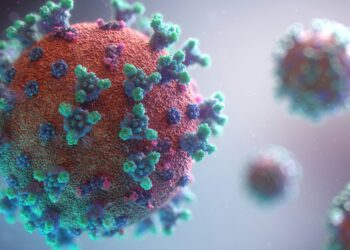Fecal impaction is a condition when your poop gets really hard and stuck in your intestines. Normally, when you need to relieve yourself, your body pushes the poop out. But with fecal impaction, the poop becomes so hard and dry that it gets stuck and won’t come out easily. This can be really uncomfortable and painful.
Unfortunately, fecal impaction is unlike regular constipation, which you might solve by drinking more water or eating more fiber. Fecal impaction is tougher to fix on your own; it often needs a doctor to help remove the hard poop safely.

Causes of Fecal Impaction
This uncomfortable condition happens for different reasons which include:
- Chronic constipation: When you hold in your poop for too long, it can get hard and tough to push out.
- Dehydration: Not drinking enough water can make your poop dry and hard.
- Medicine side effects: Some medicines, like painkillers or antacids, can slow down how your bowels work and make poop hard to pass.
- Not enough fiber: Fiber helps your poop stay soft and move through your body easily. If you don’t eat enough fiber, your poop can get hard.
- Health problems: Certain conditions like irritable bowel syndrome or nerve problems can mess up how your bowels work and lead to fecal impaction.
Risk Factors of Fecal Impaction
There are some people who are more likely to get fecal impaction than others. People like:
- Elderly people: As you get older, you might move less and take more medicines that can cause constipation.
- People with health issues: If you have problems like nerve damage or bowel disorders, your chances of getting fecal impaction can go up.
- Taking certain medicines: Some drugs can mess with how your bowels work and increase the risk of getting really constipated.
Symptoms of Fecal Impaction
- Hard time pooping (straining)
- Stomach hurts and cramps
- Feels like you didn’t finish pooping
- Bottom feels full or pressurized
- Leaks of liquid poop (Sometimes, watery poop can sneak out around the hard poop that’s stuck)
- Not hungry or feel queasy
Complications of Fecal Impaction
A. Bowel obstruction: This is when hard poop blocks your intestines completely, so nothing can pass through.
B. Rectal bleeding: Straining to push out hard poop can tear the skin around your bottom, causing bleeding.
C. Fecal incontinence: This means you can’t control when poop comes out. It can happen because liquid poop leaks around the hard blockage or because your bowels are too full.
D. Tissue damage in the rectum: Hard poop can stretch and damage the tissues inside your bottom.
Diagnosis of Fecal Impaction
In the diagnosis of fecal impaction, a doctor will start with a physical examination, asking about your symptoms and feeling your belly to see if it’s swollen or if it hurts anywhere. They might then do a digital rectal exam, where they use a gloved finger to feel inside your rectum for any hard, stuck poop. In some cases, they might use an X-ray to get a better look inside your intestines to confirm if there’s a blockage.
Treatment of Fecal Impaction
While trying to treat fecal impaction, you can try some home remedies like stool softeners. Stool softeners are medicines that make your poop softer and easier to pass. Another remedy is enemas which involves putting liquid into your rectum to help soften and push out the hard poop.
Conclusion
Fecal impaction is when poop gets really hard and stuck, but it can be treated if caught early. Seeing a doctor quickly can help prevent serious problems.
However, to further prevent it from happening again, focus on living a healthy lifestyle. Eat lots of fiber-rich foods like fruits, vegetables, and whole grains. Drink plenty of water to keep everything moving smoothly in your digestive system. Regular exercise is important because it helps your body, including your bowels, work better. Try to get into a routine of going to the bathroom at the same times each day.














